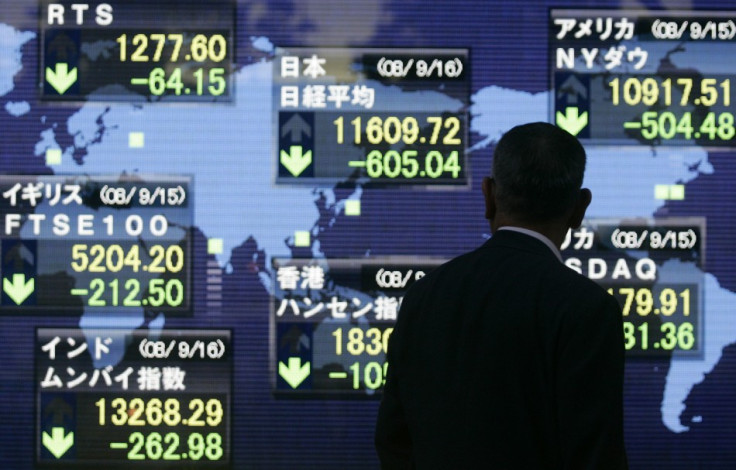China to Lead 'Great Rotation' in Global Financial Markets - HSBC

Global investors will see lower returns in both stock and bond markets this year even as the world economy begins to show signs of a sustained recovery led by China, according to an outlook Survey from HSBC.
High debt levels and deep austerity measures will keep western economies on a tepid growth path this year, the bank said, although central bank support and solid earnings will underpin equity market performance. The biggest driver of performance, however, will come from a resurgent China this year and its eventually overtaking of the US as the world's most important economy in what the bank is calling "The Great Rotation".
"With all the worries over the US fiscal position, the Eurozone's future and the stimulus-versus austerity debate, it's all too easy to lose sight of the momentous shifts taking place in the global economy," wrote HSBC's chief economist Stephen King. "China's impact on the rest of the world in recent years has been revolutionary. No longer is it possible to understand the behaviour of the global economy without acknowledging the gravitational pull of China."
The power of this pull, HSBC says, will define GDP growth in China's trade partners and set the tone for asset price performance in the coming year. China's GDP will likely grow by 8.6 percent this year, the bank says, well ahead of the 2.1 percent forecast for the global economy.
In terms of particular markets, HSBC predicts global equity returns will ease to around 15 percent this year from the total return of 18 percent gleaned from the MSCI All Country World Index last year. The bank is predicting earnings growth of around 13 percent in the United States and 6 percent in Europe.
"The main reason for our moderate optimism is aggressive quantitative easing by the world's largest central banks," wrote Gary Evans, who heads the bank's Global Equity Strategy division. "Central bank action essentially reduces tail risk. This is already led to a moderate expansion of the global equity multiple (and) we think it can expand a little further in 2013."
The bank suggests European and emerging market stocks will outperform US equities and has a preference for bank, utility and telecom stocks over those in the consumer and healthcare sectors.
Bonds, says HSBC, are unlikely to match the stellar double-digit performance of 2012 and are expected to generate overall returns of between 5 percent and 6 percent.
Interestingly, the bank notes that individual government bond markets will begin to 'decouple' in terms of return performance this year.
"It is no longer the case of deciding whether the market is in a risk-on/risk-off phase," according to HSBC's global head of fixed income Steven Major. "(but) rather one of determining whether a particular asset should be considered 'risky' or not. This makes fundamental credit analysis more important for investors in so-called rates markets, too."
The bank sees a 2.5 percent upside for 10 year US Treasury yields (which currently trade at 2.14 percent) and 2 percent for benchmark 10 year Bunds (currently marked at 1.53 percent).
The most compelling foreign exchange trades, according to the report, will come from Asia, where China's yuan and the Japanese Yen will dominate investor flows. While the bank's foreign exchange strategy head David Bloom sees only modest gains this year for the Chinese currency, he says the country's new leadership will continue its market reform agenda.
"Investors should be prepared for (yuan) internationalization to develop rapidly," he wrote.
However, the year's most aggressive move in the foreign exchange market to date, the weakness of the Japanese currency, is unlikely to be maintained said Bloom. Investors are making too much of new Prime Minister Shinzo Abe's goal of increasing the inflation target to 2 percent and urging radical asset purchases from the Bank of Japan.
"The market looks set to be disappointed both in terms of the scale of easing and the likely timeframe of delivery" from the BoJ, wrote Bloom. "The yen will recoup its lost ground as reality sinks in."
HSBC argues the efforts of central banks to support markets with quantitative easing and near-zero interest rates will add further upward momentum to gold and silver prices in 2013, although the former's gains may be limited somewhat by excessive scrap supply and weak consumer jewellery demand and the latter's by muted industrial demand.
"The reluctance of gold-laden western central banks to dispose of their reserves, together with growing appetite for gold from emerging central banks as a tool to diversify their foreign exchange reserves away from the US dollar, should support gold prices."
The bank forecasts an average price of $1,760 per ounce for gold this year.
© Copyright IBTimes 2025. All rights reserved.





















